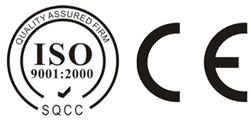1. The required illumination is it concentrated or normal?
Usually the normal illumination is ok, but the solvent extraction needs the Explosion-proof Lights, the whole solvent extraction are designed based on explosion proof, because it has Solvent which will be easy bring explosion. So for all the workshops we will offer you the Building conditions after sign contract.
2. Does the oil quality changes according to the packaging?
No, the quality of our extra virgin oil is of the same quality for every packaging.
3. How to store the oil?
The oil doesn't like the heat and the cold, besides it can easily absorb smells so it is Advisable to store it away from light in a cool, dry place where there are no smells.
4. What are fatty acids?
Fatty acids are organic acids which are naturally present in vegetable oils. They can be divided in saturated and unsaturated fats. The difference between the two is that the Unsaturated fat acids have fewer hydrogen molecules compared to the saturated ones. The Unsaturated fat acids can be monosaturated and polyunsaturated. The monosaturated fat acids represent the greatest part of the unsaturated fat acids. These acids are taken by humans through the diet.
5. Are you only dealing with presses for cold pressing?
Most of the oil presses sold by AGICO are available in hot pressing configurations as well. The main difference between cold and hot pressing does not affect the pressing equipment to a great extent, rather it has implications for the preparation of the input material. Due to the different preparation the input material has different characteristics in case of the two pressing methods, which require different press worm configurations. The worm configuration and some other settings are basically the differences between press units for cold and hot pressing. The FS-1000 type and the FS-2000 TP type oil presses on our website are basically the cold and hot pressing configurations of the same pressing unit.
6. What are the main differences between cold and hot pressing technologies?
The cold pressing of oily seeds does not require any pre conditioning of the input material. The only requirement is that the input seed is 98% clean and free of metal and stone particles. The oil yield achievable through cold pressing is typically between 34,5-35,9% of the total weight of the input material (in case of 42% oil content).
In case of hot pressing, the 98% clean, stone and metal free input material is also required, and the material is conditioned for pressing in two more steps. First the seeds go through a masher which breaks up the seeds, and the mashed material is then heated to 100-120 degrees (Celsius) in a so-called cooker. From the cooker the hot material is loaded directly into the press. The oil yield in case of hot pressing technologies is normally between 35,7-37,8% of the total weight of the input material (in case of 42% oil content).
When choosing between cold and hot pressing technologies, one must always consider the intended use of the produced vegetable oil, as well as other factors influencing return (ex.: existing infrastructure).
7. What are the advantages of cold pressing?
The oil produced with cold pressing technologies is of very high quality. In our experience, cold pressed rapeseed oil is suitable for biodiesel production (estherification) without any further processing. This means that the critical quality measures for estherification, the phosphorus content, remains desirably low below 35 ppm. As opposed to this, vegetable oil produced with hot pressing technology typically has a phosphorus content of 200-500 ppm, therefore, if the desired use of the oil is biodiesel production additional investment in degumming technology (to reduce the ph




